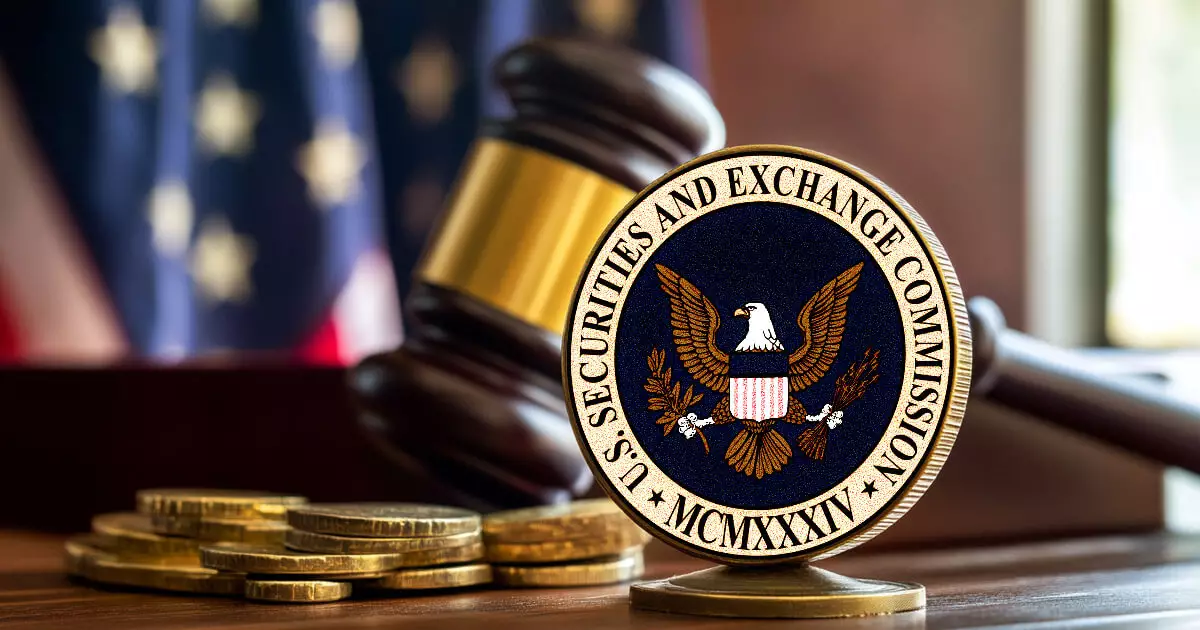The recent charges brought against Cumberland DRW by the Securities and Exchange Commission (SEC) mark a significant moment in the ongoing battle between regulatory bodies and the rapidly evolving cryptocurrency market. The SEC alleges that Cumberland, a Chicago-based crypto market maker, operated as an unregistered securities dealer—a serious claim that could reshape the landscape for crypto trading and market making.
On October 10, 2023, the SEC filed a complaint against Cumberland, claiming that the firm traded over $2 billion in cryptocurrencies categorized as securities since March 2018. This allegation indicates a substantial size of operations that is hard to overlook, raising questions about compliance and regulatory oversight in the crypto space. The SEC’s chief of the Crypto Assets and Cyber Unit, Jorge G. Tenreiro, stressed that all securities dealers, including those participating in the cryptocurrency sector, must register with the Commission. His statement underscores the regulatory framework that providers of digital assets must navigate and the consequences of operating outside these parameters.
Cumberland’s alleged failure to register as required under federal securities laws has implications beyond just this one firm. It raises critical questions about the classification of cryptocurrencies and the ongoing debate around whether certain tokens should be viewed as securities or commodities. Tenreiro pointed out that Cumberland’s actions suggest an acknowledgment of these assets as securities, thus triggering the requirement for registration to protect investors.
Cumberland is known as a liquidity provider in the cryptocurrency market, facilitating over-the-counter (OTC) trades and engaging with various crypto instruments, including derivatives and forwards. The sheer volume of transactions attributed to Cumberland, specifically over $2 billion, is indicative of the significant role it plays in maintaining liquidity in the crypto market. However, this role could become problematic in light of regulatory scrutiny. The SEC seems to be reinforcing its stance that increased activity within the cryptocurrency sector does not exempt market players from existing regulatory frameworks.
Moreover, the SEC is also vigilant about ensuring that companies engaging in trading activities adhere to guidelines designed for investor protection. Cumberland’s claim regarding its robust compliance framework highlights the tensions between regulatory expectations and the operational practices of companies in the crypto space. Cryptocurrencies’ sometimes nebulous legal status complicates these matters, as companies attempt to interpret regulatory frameworks in a landscape where definitions may be fluid.
In response to the SEC’s enforcement action, Cumberland has taken a defiant stance. The firm voiced its concern that the SEC’s actions might stifle innovation in the crypto sector. They insist on confidence in their compliance mechanisms and view the regulator’s current actions as a moving target, given the evolving interpretations of what constitutes securities in this emergent field. Their assertion that discussions have been ongoing for five years further emphasizes the complexity of navigating the regulatory landscape.
Cumberland also references the broker-dealer registration it acquired under SEC Chairman Gary Gensler’s guidance in 2019, indicating that it believed its activities were in line with the regulations at that time. This past relationship raises a significant question: If the SEC provided the guidance that led to Cumberland’s registration, how does the current enforcement action align with those previous assurances?
The implications of this case are widespread. For market makers, the SEC’s charges could signal a new wave of regulatory scrutiny, leading to a potential chilling effect on market activity. Investors may reconsider their strategies while companies could feel incentivized to adapt operations to ensure compliance or even to limit the scope of their activities to avoid regulatory action.
As Cumberland holds a significant amount of crypto—reported to be over $81.5 million—mainly in Bitcoin and other digital assets, the outcome of this case could influence market perceptions of the legitimacy and safety of cryptocurrency investments. Should the SEC prevail, it could set a precedent that redefines how crypto entities must operate in the U.S., emphasizing a more stringent compliance environment for the burgeoning industry.
The ongoing legal controversy surrounding Cumberland DRW illustrates the complex interplay between innovation in the crypto market and the regulatory frameworks designed to safeguard investors. As this case unfolds, it will be crucial for all stakeholders in the cryptocurrency ecosystem to remain vigilant and adaptive to the changing regulatory landscape.
















Leave a Reply